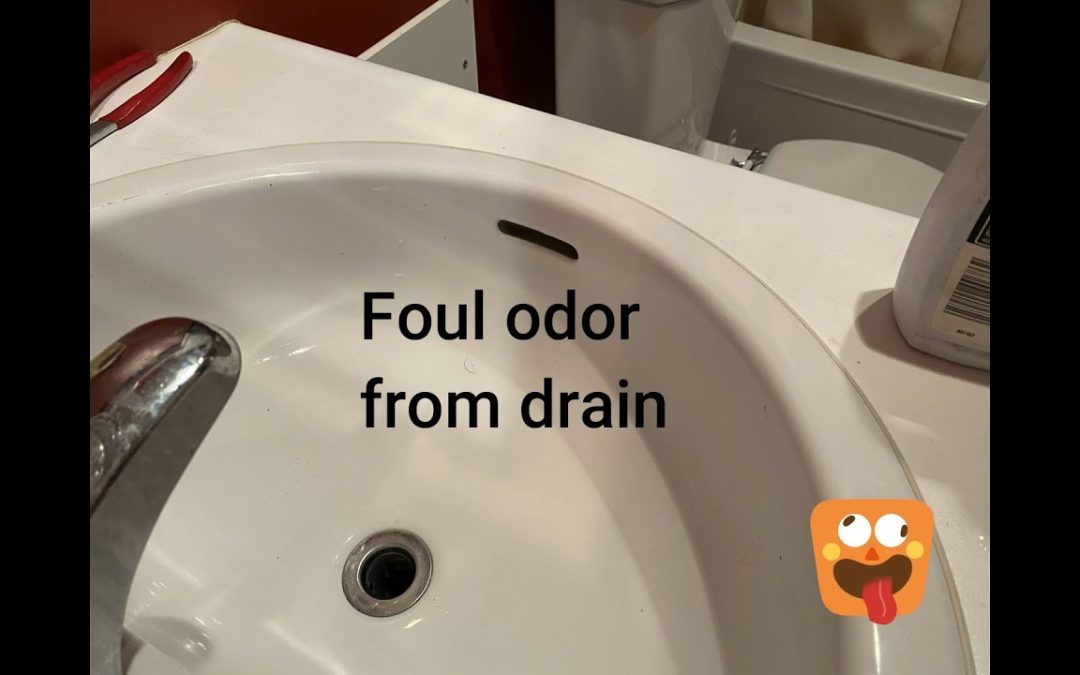Have you ever wondered how to stop the smell from your bathroom sink? If so, you’ve probably tried the vinegar and baking soda solutions. These solutions can work for mild smells but only partially clear a clogged sink. This article will give you a few options to try. In the meantime, keep reading for helpful advice and information about how to clean your bathroom sink. Until then, let’s take a closer look.
How do I get rid of the smell in my bathroom sink?
You might wonder how to eliminate a bad smell in your bathroom sink. The good news is that there are many effective home remedies for this common problem. One of them is simply using air fresheners. These little devices can be plugged into the wall near the sink. Other people use essential oils or citrus fruits to freshen the air. These smell-fighting agents include lavender, cedarwood, eucalyptus, and chamomile.
In addition to cleaning, you can use bleach to eliminate odor-causing bacteria. Bleach kills most bacteria that cause bathroom odors but also smells like bleach. For this method to work, you must thoroughly clean the basin before applying any of the solutions mentioned earlier. Then, wait for the solution to dry. This process should be repeated if the odor persists.
Using vinegar and baking soda to clean the overflow pipe is another solution. Vinegar or household bleach will work for this purpose. A wire brush can also be used to scrub the inner rim of the overflow hole. You can also try a non-toxic alternative like oxygen bleach if all else fails. However, it would be best if you used a professional cleaner to eliminate any foul odors from your bathroom sink.
Why does my bathroom sink smell like sewer?
A sewage-like odor may be coming from your bathroom sink. A clogged drain may be the cause of the odor. While a plunger can help remove the clog, a plumber can use a drain snake or hydro-jetter to eliminate the smell. If you have a guest bathroom that rarely gets used, running water through the drain may help restore the moisture barrier to the drain.
If your sink does smell like sewage, you may need to investigate its source. A blocked vent or p-trap may allow sewer gases to escape. These two problems are often difficult to distinguish because homeowners typically focus on one. In either case, you’ll want to check the vent as well. If it’s blocked, you’ll want to replace it. Otherwise, you’ll need to replace the piping system from the street.
The smell may also be coming from the sewage, which is the most likely culprit. Biofilms form when organic waste, hair, soap, and other materials accumulate in the pipes. This biofilm will eventually produce bacteria that cause the sink to smell like a sewer. In addition to biofilms, daily showering causes sediment to build up in the drain. This sediment and dead skin cells can clog the drain and cause a slow water leak.
Why Does My Sink Drain Smell?
Try using baking soda to soak up odors. Sprinkle some baking soda after you’ve done the dishes, once a week, or whenever you travel. This should do the trick. But if the smell remains, you might need to call a plumber. Here are some tips. Call a plumbing service if you notice a strong odor from your sink drain.
A clogged drain is a common cause of odors in the sink. The odor is the result of biofilm that builds up in the drain. In addition to biofilm, a clogged drain may also have gurgling noises. If you notice gurgling sounds when running water, this may indicate a larger plumbing problem. Sewage gas can also cause drain smells.
Sewage gas is the primary culprit behind a smelly drain. Sewage gases rise through pipes, causing a rotten egg-like odor. This is why every drain contains a P-trap, a curved section of the pipe that traps sewer gases from rising. By cleaning out biofilm, a clogged drain will smell better. If you’ve been dealing with a lingering odor, biofilm should be removed from the drain.
Do Baking Soda and Vinegar Solutions Clear Clogs?
Using these substances to unclog your drains can be an effective way to clean your bathroom sink. This solution works best when you pour a small amount of each into the sink and drain slowly. Moreover, boiling water is not recommended if you have a plastic drain line. However, if you’re using a metal drain line, you can use boiling water instead.
A mixture of baking soda and vinegar can also be used for cleaning your drain. While baking soda can effectively remove small clogs, it will only work well if you combine them. Moreover, you should never mix these two products with industrial chemicals as this could result in a chemical reaction. Therefore, if you are concerned about the safety of your plumbing, it’s better to seek professional assistance.
Adding a half-gallon of boiling water to the drain can soften greasy or oily buildup. Once this occurs, add a cup of baking soda to the drain and wait five minutes. The stopper helps to keep the mixture from spilling out. After five minutes, turn on the hot water and pour the mixture down the drain. It should dissolve the clog without causing any further damage.
How do you clean a garbage disposal?
If you notice that your garbage disposal is causing a bad smell in your bathroom sink, it may be because of a buildup of food particles. While cleaning the disposal, it is important to keep in mind that it can get trapped in the joint between the rim of the disposal and the sink basin. This area can become moist and harbor mold if not cleaned thoroughly. The best way to remove trapped food is to run the faucet in your kitchen, as this will help dislodge any food particles. A sink drain can be re-obtained by eliminating foul odors by various methods.
When food waste gets stuck in the garbage disposal, it gets pushed against the shredder ring by centrifugal force. As the waste exits the disposal, the liquefied food particles get deposited on the sides of the device and the rubber splash guard. Once they are exposed to air, these particles start to rot and stink. Luckily, there are some ways to prevent this from happening. Food can clog drains with even the smallest amount of residue.
A baking soda and vinegar mixture can be put into the garbage disposal to eliminate odor-causing gunk. The mixture should bubble for about 10 minutes, then be rinsed out with boiling water. You can also put a lemon rind in the drain to freshen up the disposal. Another great way to stop odor is by using vinegar and ice cubes.
Why does my sink smell like sewer?
One of the most common reasons your bathroom sink might smell like a sewer is clogged with bacteria and soap scum. It’s also possible to have an overflow hole, which can cause an awful smell. Clean these overflow holes regularly to prevent a sewer smell from developing. Another possible source of sewer gas is a mineral buildup in the drain. It would be best if you considered drain cleaner to eliminate the problem.
Considering the problem with the water heater, consider replacing it. A clogged drain is the most likely culprit if you’ve had the odor for several years. This appliance causes bacterial colonies to grow, which causes the odor. Bacteria grow in hot water, giving off an unpleasant smell, much like rotten eggs. Try to unclog this issue by running hot water and flushing out the sink. If the smell persists, call a plumber. If all else fails, try replacing the water heater.
The problem isn’t always the clog, but a dirty P-trap may be to blame. A clogged drain trap can allow sewage gas to seep into the main parts of the house. A properly working P-trap will help prevent this from happening. Otherwise, your bathroom sink will smell like sewage. If you’ve tried to fix the problem, there’s no guarantee it will work.
What can I do to prevent my bathroom sink from smelling?
A foul odor can be caused by a garbage disposal or a buildup of food particles in the basin. It is usually the gunk in the drain that causes the odor caused by bacteria in the pipes. This gunk attracts bacteria that give off a foul odor. To remove the smell from your bathroom sink, follow these simple steps:
Boiling water will help dissolve any clogs and prevent a foul odor from forming. Boiling water can also be used to flush out the drain. If the odor persists, pour the water down the drain and let it sit for about 30 minutes. Follow the directions on the label of the cleaner. Once the vinegar has dissolved the odor, you can flush it out. Once the vinegar has drained, the sink should be odor-free.
Baking soda can help clear up a foul odor in the drain. When mixed with salt, it helps eliminate the odor from the drain. Leave the mixture in the drain for a few hours or overnight, depending on the severity of the odor. Hot water is also an effective way to neutralize the source of the bad smell in your drain. Just remember to pour a little hot water at a time, as the water is a hot and corrosive substance.
Conclusion
There are a few possible reasons your bathroom sink smells. Luckily, cleaning a smelly drain in a bathroom sink can be easy if you have the right tools. When your bathroom sink drain smells bad, it’s sometimes because there is a buildup of gunk and bacteria around the sink drain. Following the simple tips, you can keep your bathroom sink smelling fresh and clean all year long and say goodbye to that terrible sewage smell.



